Responsible Choices
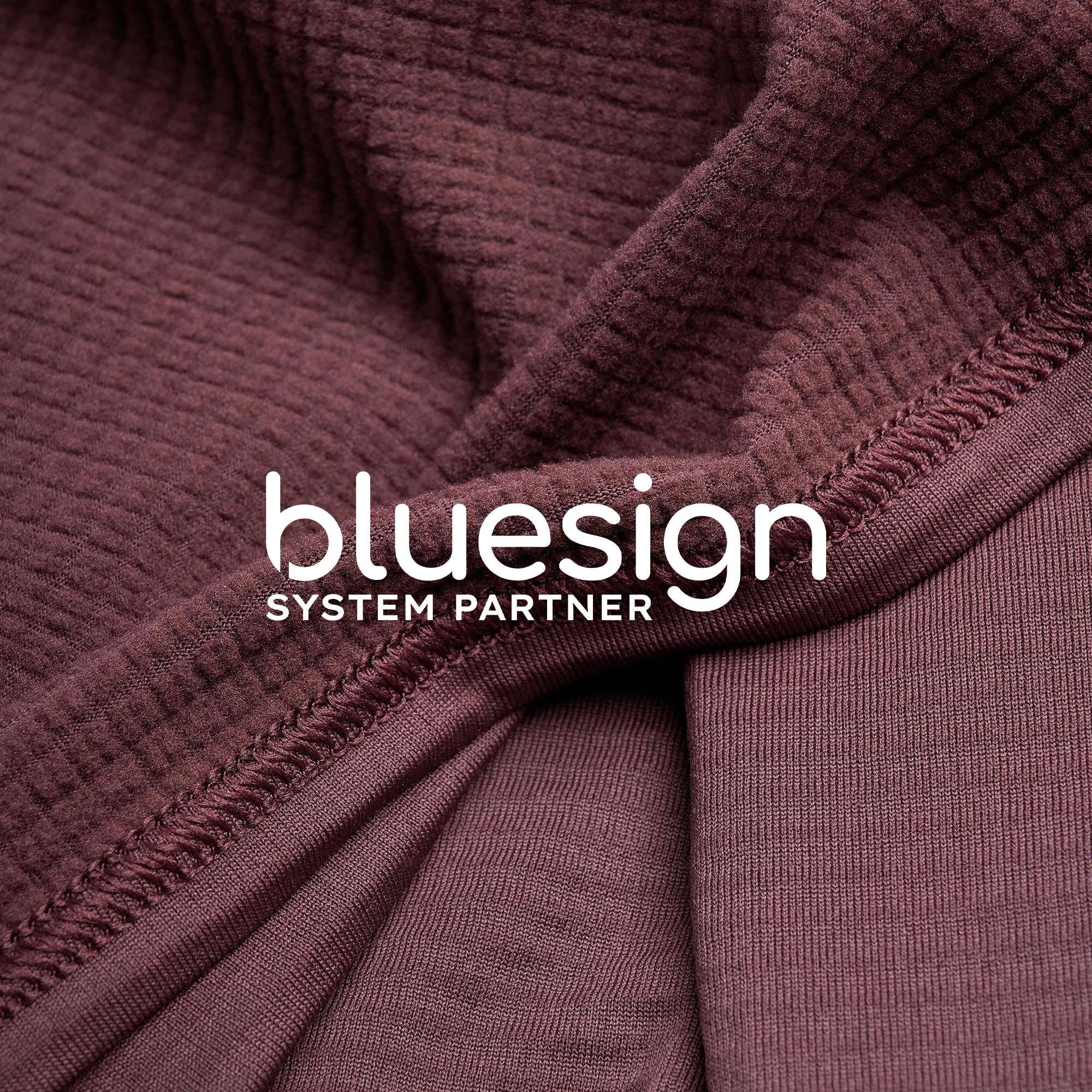
bluesign® SYSTEM PARTNER
Many of the fabrics and trims Montane uses have been bluesign® APPROVED for years, however in 2024 we also became a bluesign® SYSTEM PARTNER.
This supports us by:
• Implementing a robust Restricted Substances List (RSL) and testing programme, that aligns products with EU REACH regulations and is closely monitored by bluesign®.
• Providing access to bluesign®’s database to aid Montane in sourcing bluesign® APPROVED fabric and trims.
• Improving visibility of our supply chain, and the chemicals used by tier 1 and 2 suppliers.
Currently over 50% of styles on our website include a Know What You’re Buying table, where bluesign® APPROVED fabric and trims are identified. We plan to build on this soon by also highlighting which styles qualify as bluesign® PRODUCTS.
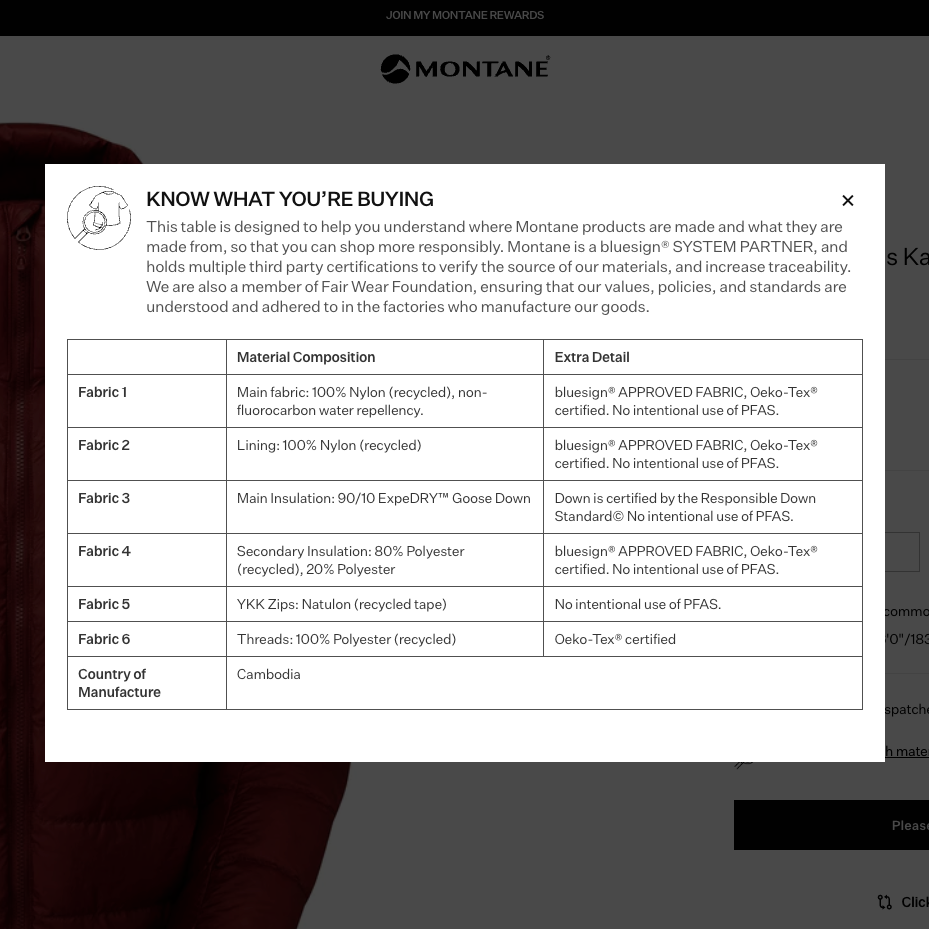
Know What You’re Buying
Our work towards increasing product transparency is ongoing, and we’re committed to keeping you informed along the way. We know products can be complex, so we’re here to help you understand where Montane products are made and what they are made from.
To aid this understanding, look out for the ‘Know What You’re Buying’ icon on our website product pages. When clicked, this provides additional product detail including third party certifications. Where a product uses a water repellent treatment and/ or weatherproof membrane, you can easily see if this uses potentially harmful chemistry (PFAS). Our hope is that these tables help you to Know What You’re Buying. To discover in-depth material details look out for the ‘Know what you are buying’ icon on product pages (see example on the left).
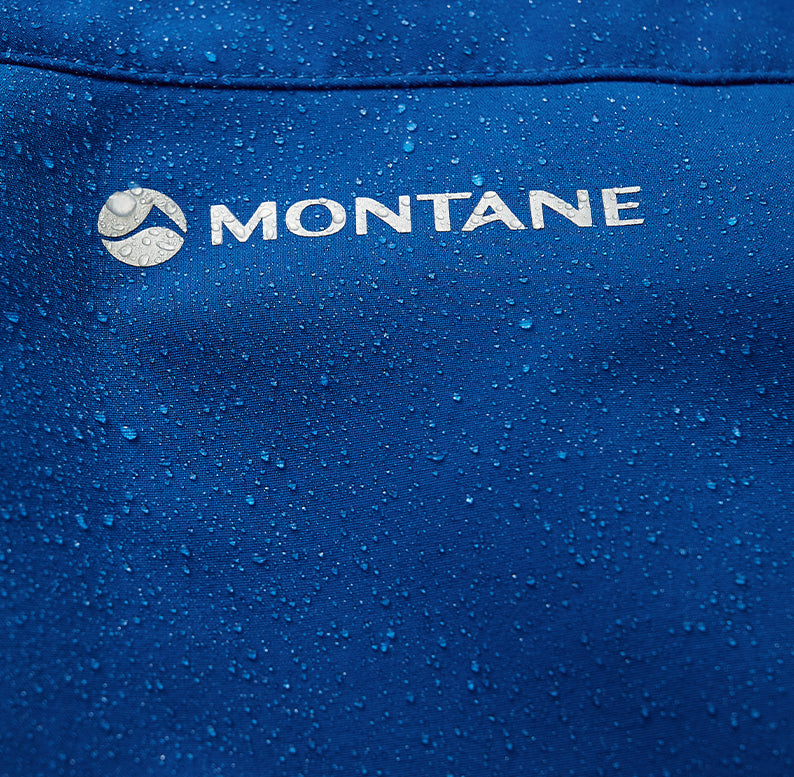
PFAS Chemicals
Montanes longer-term goal is to remove the intentional use of PFAS chemicals from our supply chain by 2026. PFAS chemicals include PFCs (perfluorinated compounds), which are commonly used in waterproof membranes and durable water repellent (DWR) textile treatments. These man-made compounds provide superior water and oil repellency, ensuring water resistance that both prevents garments from wetting out and extends the lifetime of the product by protecting the waterproof membrane from contamination.
There are growing concerns regarding the use of PFAS chemicals, because they shed from garments when washed or worn, releasing them into the environment where they have been found almost everywhere on the planet. As the perfluorinated bonds within the compound slowly break down, carbon molecules bioaccumulate and can negatively impact human and environmental health.
Traditional longer chain chemicals were known as C8 – where the compound contained eight carbon molecules. The additional number of molecules and bonds made C8 chemistry especially durable, but also especially resistant to breaking down. C8 chemistry was consequently banned and replaced by C6 chemistry. This uses six carbon molecules in a slightly shorter chain, thus having slightly less durability and slightly less negative impact. Ultimately however, shorter chemical chains only mitigate and do not solve the issue.
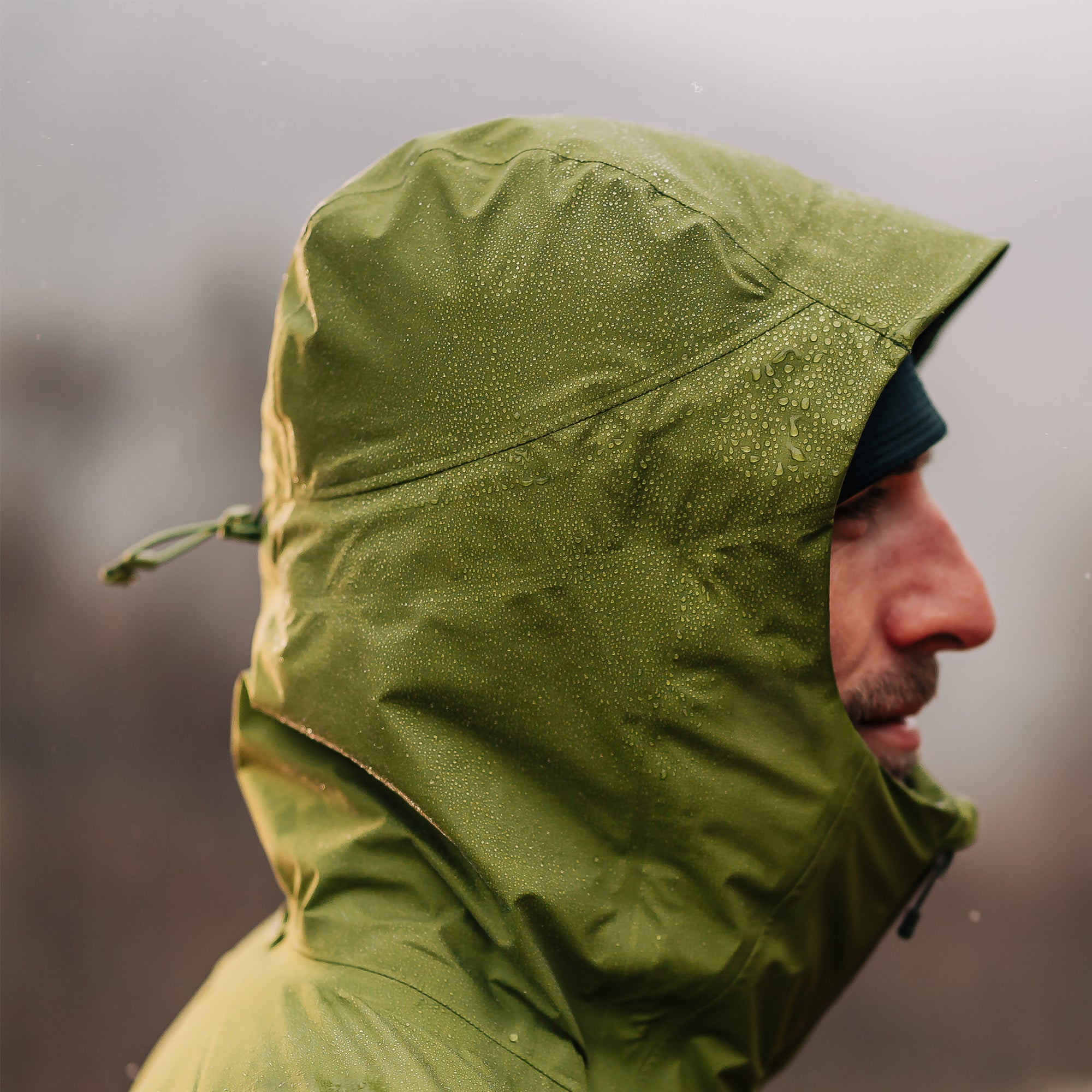
This has led to a global shift towards banning PFAS chemicals, where the nature and progress of legislation varies between countries and states, and has influenced a clear trend towards brands adopting non-fluorocarbon water repellency treatments and membranes ahead of bans being imposed. The transition to non-fluorocarbon technology is slow for a few reasons:
• Non-fluorocarbon technology varies, with some solutions shifting rather than solving the issue by including chemistry containing alternative but still concerning ingredients.
• Non-fluorocarbon technology typically struggles to match the performance and durability of technology based on PFCs, thus offering lower protection and potentially reducing product longevity
• Many manufacturers and brands will own fabric or finished stock made before this transition, which needs to be used up and sold rather than simply being discarded.
Montane introduced our first products using a non-fluorocarbon water repellency in 2019. Since then, we have been working hard to test and introduce products with no intentional use of PFAS where user protection and product performance are not compromised. Our transition to eliminating PFAS chemicals is partially dependent on our material and trim suppliers sharing our goals and taking action that filters into Montane products.
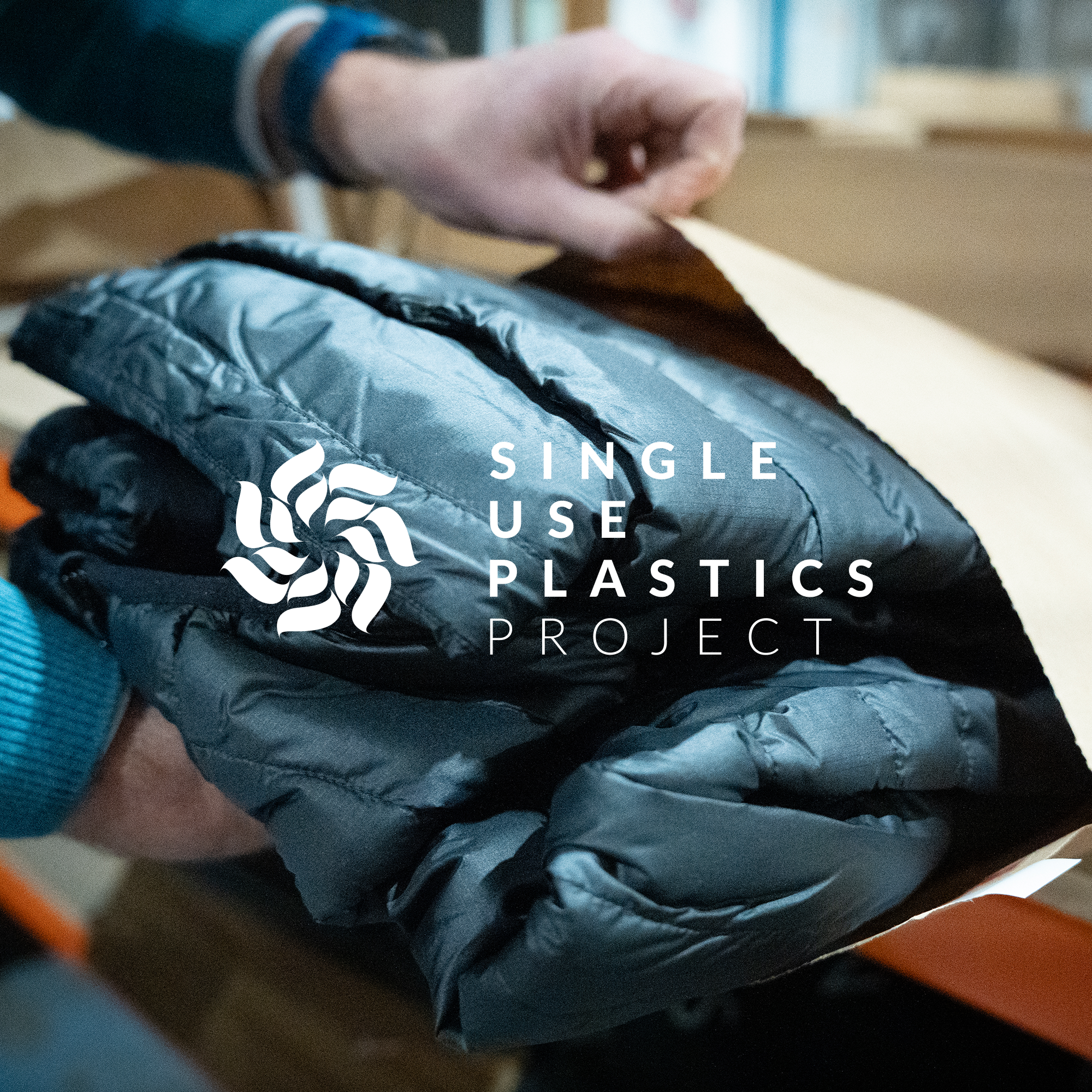
Single Use Plastics Project
Since 2019 Montane has been a member of the European Outdoor Groups (EOG) Single Use Plastics Project. This project is working to significantly reduce single use plastic waste in the outdoor industry, by recapturing and recycling polybags. This is to limit the need for, and reduce pressure on virgin resources and keep polybags out of landfill. The focus of this work is on polybags as these were quickly identified as the industry’s largest source of single use plastic pollution.
The Single Use Plastics Project is a brilliant way in which the outdoor industry has come together to collectively tackle an issue all clothing brands face. Having established that recycled LDPE (low density polyethylene) is the most widely recycled material for polybags (as well as effectively protecting the product), we are proud to say that Montane completed the transition to using 100% recycled LDPE in all of our polybags in 2021.
In 2023 we removed polybags from our direct-to-consumer orders. As soft plastics are not commonly included in curbside recycling, doing this diverts them from landfill, enabling us to bale and recycle them instead.
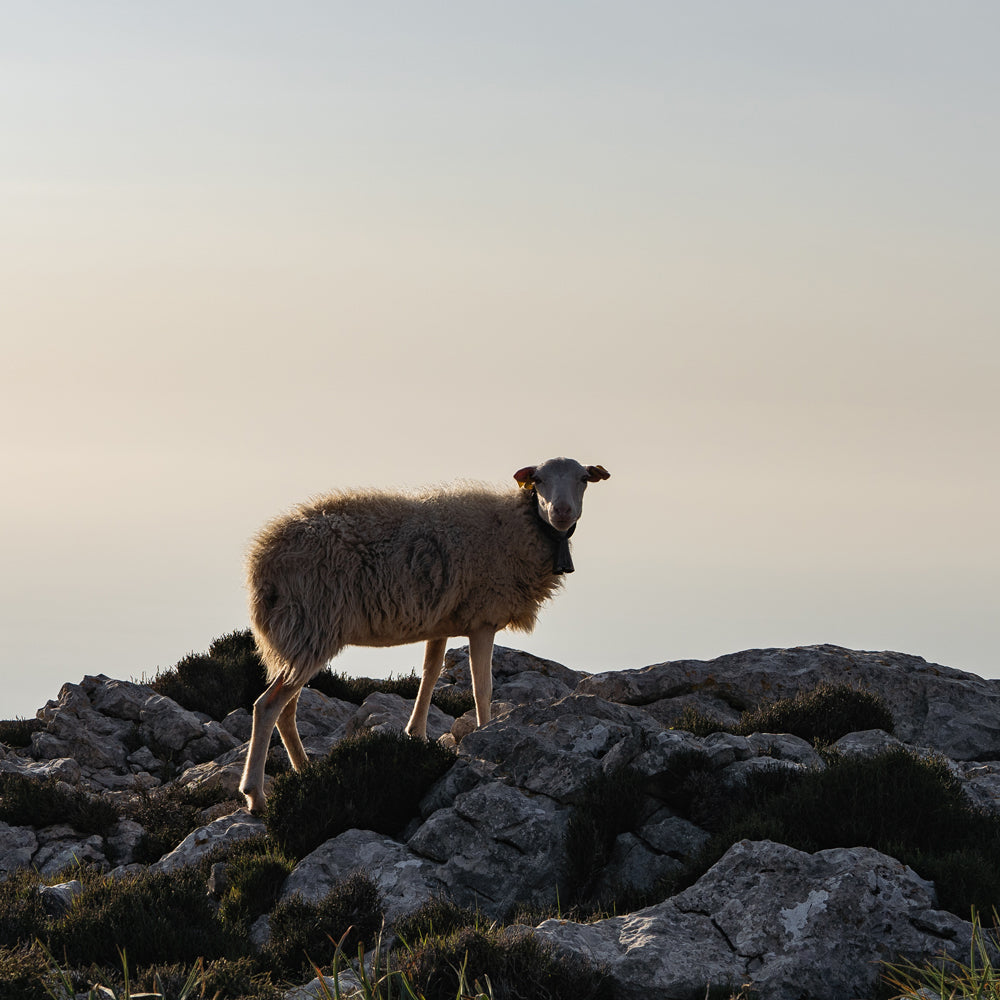
Animal Welfare
Animal welfare is a critical part of our sourcing decisions, and some Montane products contain animal derived materials that offer exceptional performance. These include wool, down and leather, where our certification to or membership with the below organisations supports material traceability. For those looking to avoid animal content we also offer synthetic alternatives to the materials described here.
Where merino wool is used in our range it is always certified to be mulesing-free, prohibiting the act of mulesing. Mulesing treats a common infection for merino sheep called flystrike, where infected flesh is removed from the sheep, often without anesthetic. Regular shearing and antibiotics can be used to prevent flystrike and are more humane. This is why Montane places importance on ensuring all of the merino wool we are sourcing is certified as being muleseing-free.
In 2015, Montane became the first brand in the world to implement the Responsible Down Standard (RDS) across our entire down collection. The RDS is a comprehensive global, third-party-certified, animal welfare and traceability standard for down and feathers. The RDS ensures that the down in a product does not come from birds that have been live-plucked or force-fed, and that the welfare of the birds is protected throughout their full life. The entire supply chain – farms, collectors, slaughterhouses, down processors, sewing factories and distribution centres – are inspected by independent, professional certification bodies annually to guarantee complete traceability and compliance.
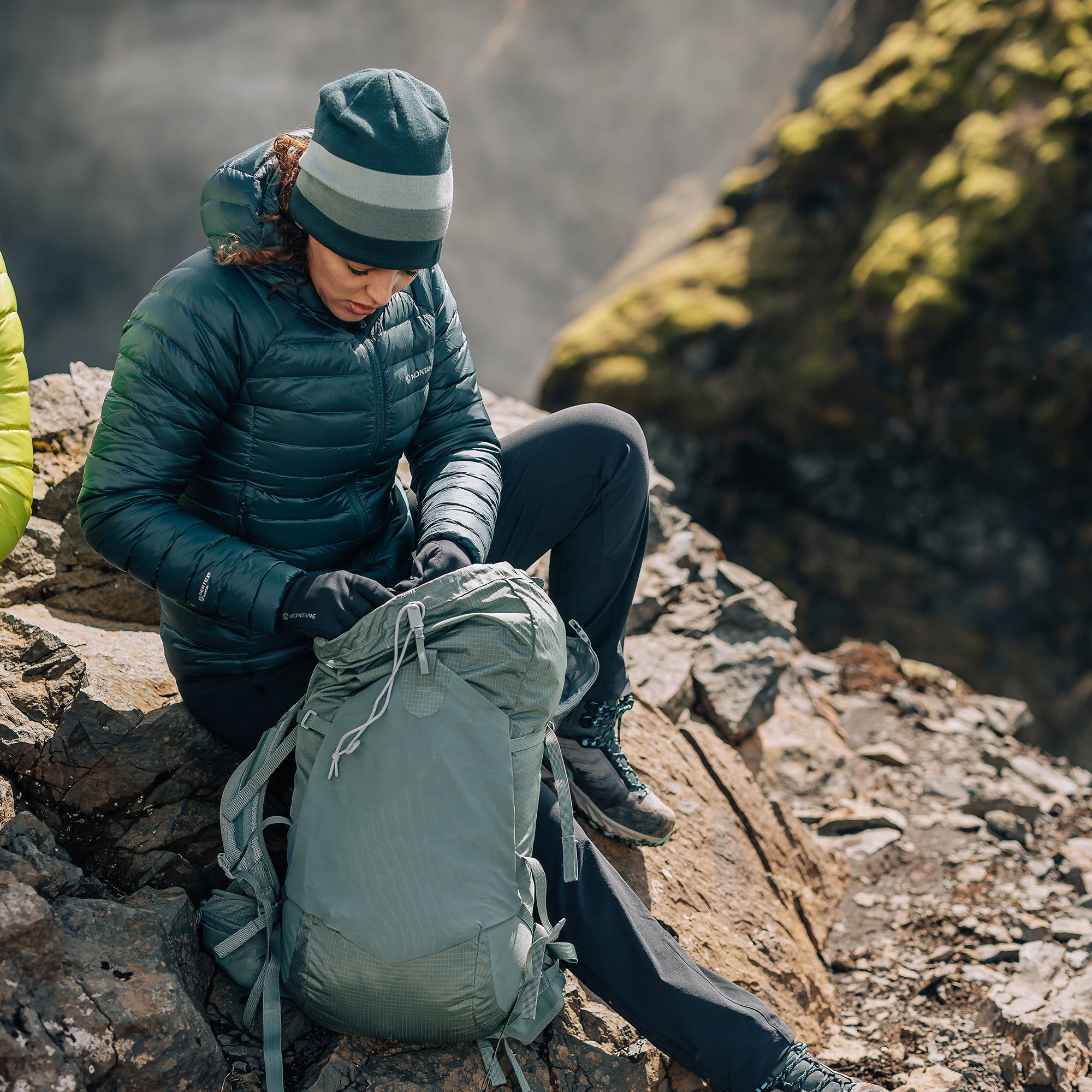
We have a small number of styles that use certified recycled down, which cannot be accredited to the Responsible Down Standard because the origin is unknown due to it being recycled. For the same reason we do not specify whether our recycled down comes from geese or from ducks (this detail is given on Montane products using virgin down).
Montane is a member of the Leather Working Group – see below for more detail.
Montane does not produce any products that require the use of fur, exotic skins, angora, or silk.
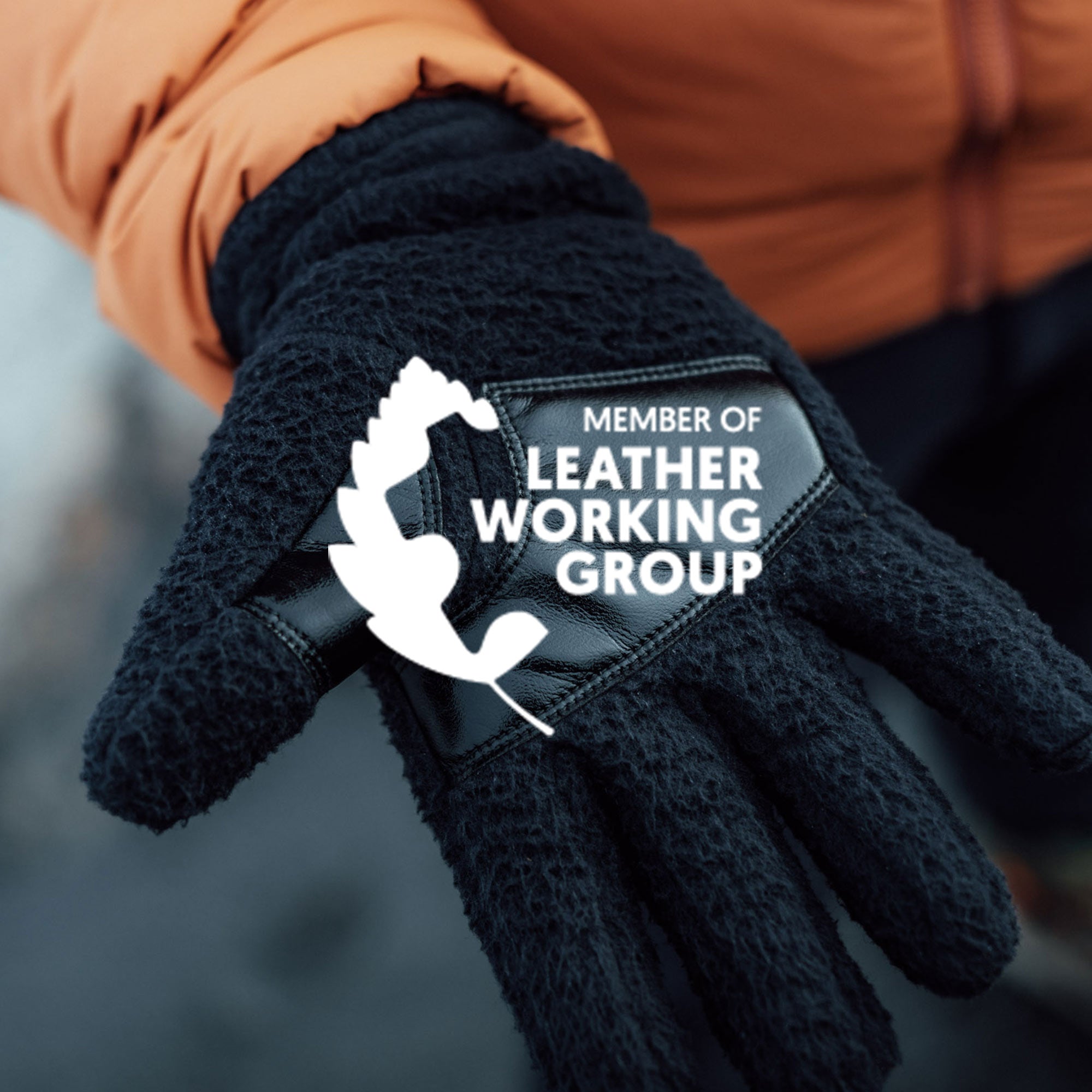
Leather
In 2023 Montane became a member of the Leather Working Group (LWG). Leather is exclusively used in our gloves, where small areas of leather are a bi-product of the meat industry.
Broadly speaking the processes used to source, tan and dye leather are water, chemical, and energy intensive. The LWG audit tanneries against environmental aspects including water, chemical and waste management, and energy use. The tannery is then graded as either Gold, Silver, Bronze or simply ‘Audited’.
We are committed to supporting responsible leather manufacturing across the globe, and by AW25 100% of the leather Montane uses will come from LWG audited factories with a Gold certificate (currently this is ~60%). In addition, the audit certificates our suppliers hold support the protection of workers in this supply chain from unsafe exposure to harsh chemicals. As global traceability in leather supply chains advances this membership will help Montane to stay at the forefront of how to maximise transparency for the leather we use. Montane does not produce any products that require the use of fur, exotic skins, angora, or silk.

Recycled Fabrics
Montane works closely with our suppliers to introduce recycled materials to our product range where available, and where performance and durability are not negatively impacted.
As many technical fabrics are made from polyester and nylon - which are both oil based - the purpose of switching to a recycled alternative is to reduce demand on virgin resources.
The need for third party certifications is also steadily growing, to verify the material claims made by brands. Montane undergoes an annual audit to the Global Recycled Standard, which sets the criteria for verification of recycled materials i.e. that the recycled yarns we source are the same recycled yarns that go into Montane products. To verify this, each part of the supply chain is audited: yarn supplier – fabric supplier – garment manufacturer – brand.
We are currently working to make third party material certifications more visible on our product pages, to make it easier to see where this has been granted.
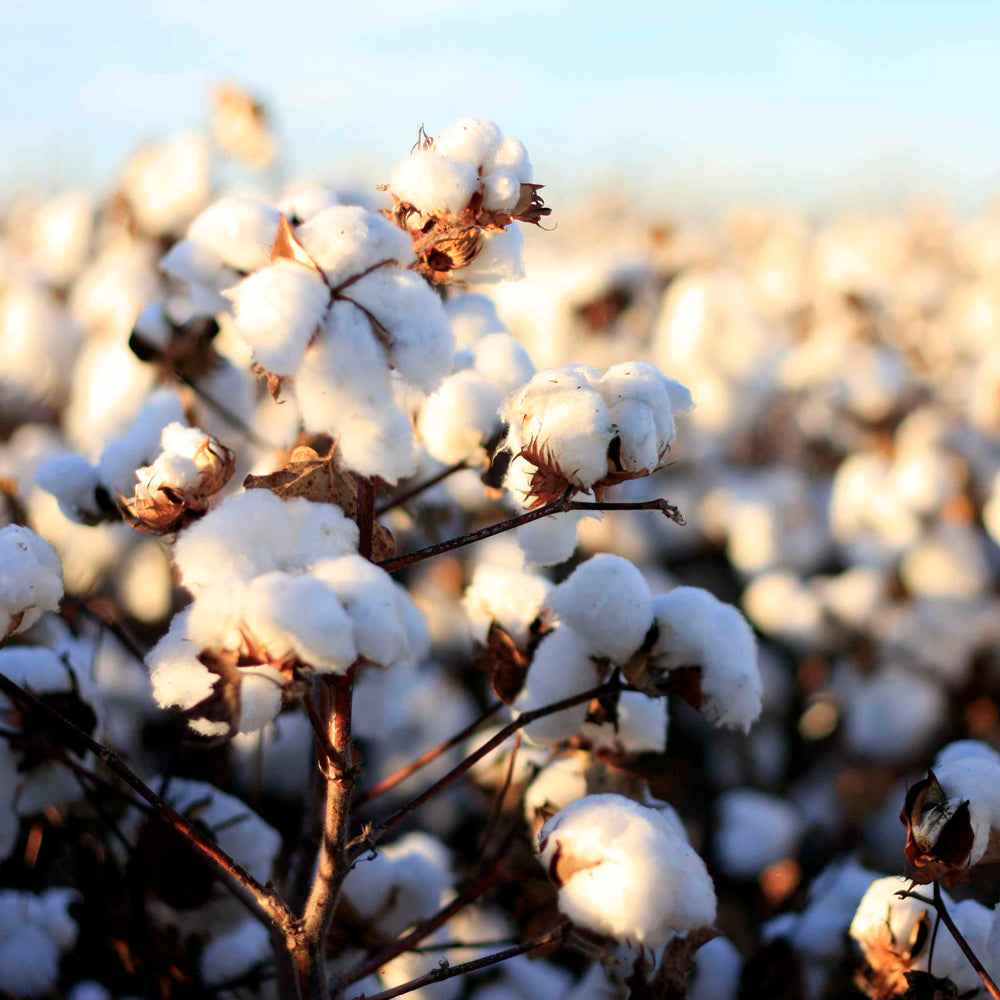
Organic Cotton
Montane has committed all of our cotton products to using organic cotton certified by a third party. This is due to the huge quantities of insecticides, pesticides and water used in conventional cotton production. Organic cotton gives cotton farmers greater flexibility regarding crop rotation (in turn improving soil health), protects them from first-hand chemical use, and prevents hazardous chemicals from leaching into local waterways used for agriculture and drinking water.
In addition, we are committed to upholding our human rights due diligence everywhere our products are sourced and manufactured, with the cotton we use being sourced in alignment with international guidance. This is monitored as part of our membership with the Fair Wear Foundation, which you can read about here.
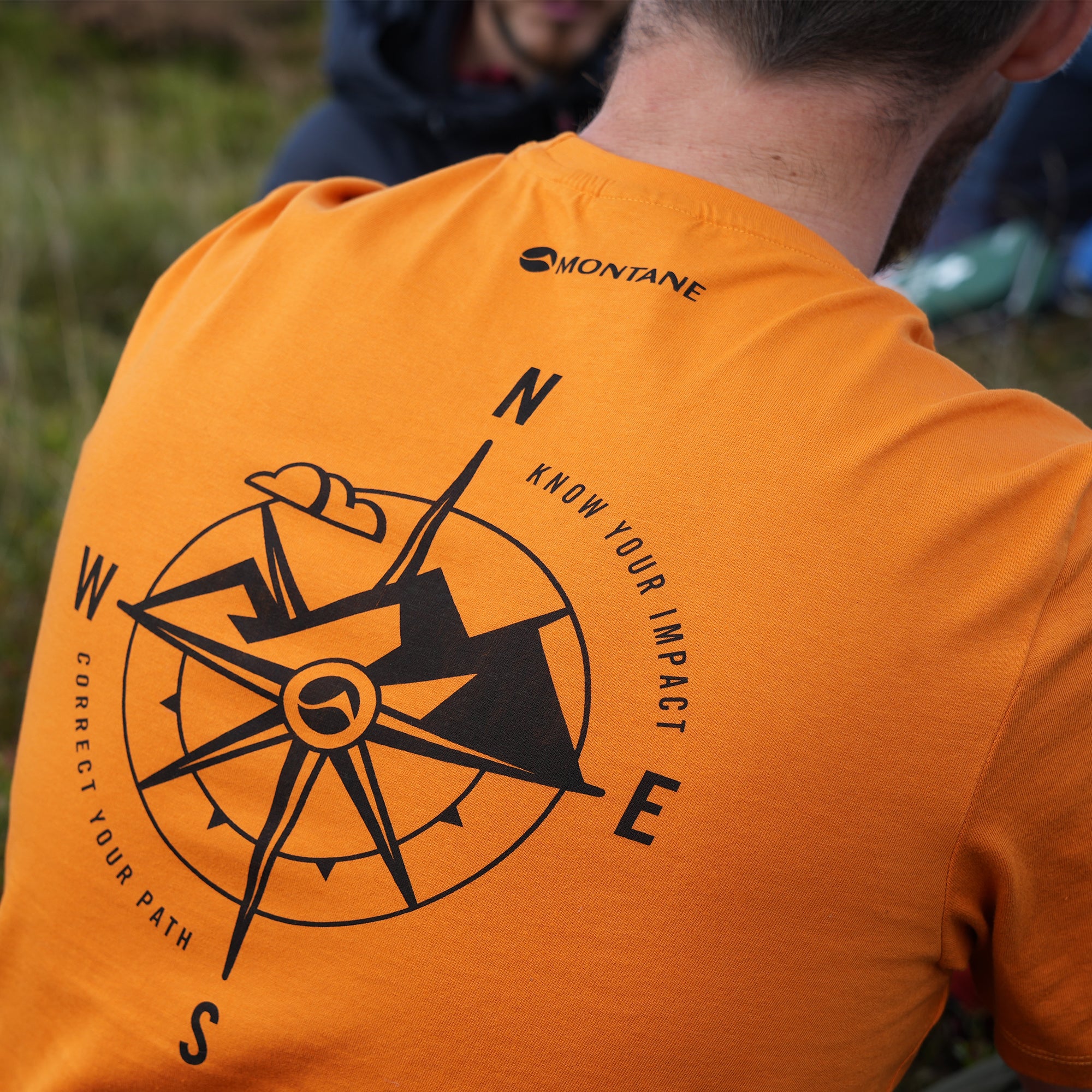
PVC and Phthalates
Montane only use printing inks which are free from polyvinyl chloride (PVC) and phthalates. PVC is commonly used for the screen printing of garments, in conjunction with plasticisers such as phthalates. Prints are heat-fixed to fabrics to ensure durability throughout their lifespan, however, phthalates can leach out from garment manufacturers wastewater, and even onto the wearer's skin after purchase. Phthalates have been linked to disrupting hormone levels as well as being a suspected carcinogen.

Microplastics
Microfibres are tiny fragments of textile fibres that are lost during the washing and wearing of garments. They pose a significant challenge for the textile and garment industry as these fragments are known to contaminate the environment around us. They are persistent, meaning they either do not break down at all or they break down very slowly.
Unfortunately, there are widespread misconceptions that eliminating synthetic textiles (commonly used for technical and active wear) will solve this issue, however microfibres can be either natural or synthetic, and research has shown persistence from both when found in the environment. For natural fibres this is due to a range of things such as the oils used to smoothly spin the fibres into yarns, the dyes and fixatives used to produce the textiles, and any treatments added to finish textiles or garments including anti-odour, anti-mosquito, and flame retardance. In addition to this many natural fibres are blended with synthetics to improve durability (nylon), stretch (elastane), or wicking (polyester) as examples.
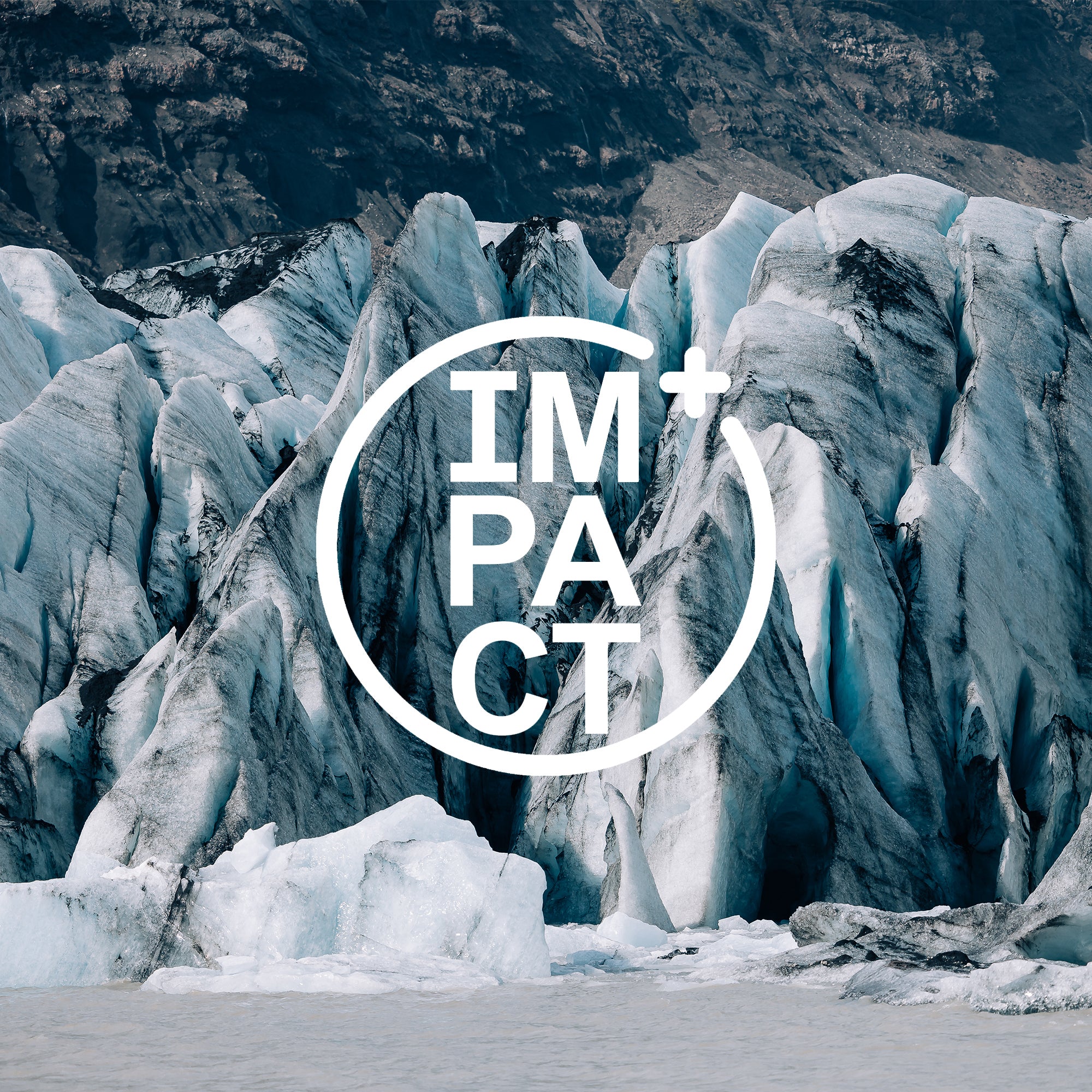
Microfibres from synthetic fabrics are also microplastics, however the term microplastics is broad and includes fragments from a number of sources including car tyres and the breakdown of waste plastics.
In 2023 Montane joined the IMPACT*+ Network as a Project Partner on their Independent Advisory Board, alongside partners including The Microfibre Consortium and the Waste and Resources Action Programme (WRAP) as well as other small and large garment brands. The Network has been awarded £1.9million from government funding through UKRI Research Councils and aims to improve the collation, analysis and assessment of environmental impact across the fashion and textile industries. You can follow the progress of this project on their project website and on X @IMPACTnetwork23.
*Index Measures Promoting Assessment and Circular Transparency in fashion











